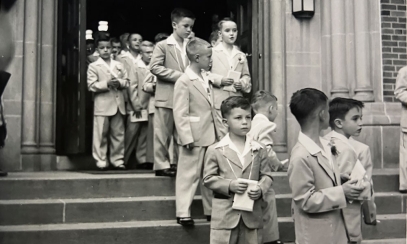
Game of God Part 2: Searching for God
In his classic and controversial 1963 book entitled “Honest to God,” Right Rev. John A.T. Robinson, an Anglican bishop, argued that God is not “up there or out there,” as is often assumed. So, where then is God?
In his classic and controversial 1963 book entitled “Honest to God,” Right Rev. John A.T. Robinson, an Anglican bishop, argued that God is not “up there or out there,” as is often assumed. So, where then is God?
In the nothingness
There are a lot of “things” in the world — in our homes, at work, in the environment; even people are things that exist in the world. The word “thing” is dominant in our vocabulary: I don’t have any-thing to wear, I want to grow up to be some-thing or my neighbor seems to have every-thing. To have things or be things is important to us and suggests a certain degree of standing in the eyes of the world.
In between and all around those things is space, where there are no things. We could call this space between and around the “no-thing-ness,” or nothingness. Could that be where God is, in the no-thing-ness?
Another way of looking at it is that God is “behind” all things. Years ago I read an article — though I cannot now remember or recover the source — about God being “the silence behind the music.” Before an orchestra plays, there is silence. Then the orchestra begins and overlays the silence; music is out in front but the silence is still there. When the music stops, the silence again comes to the forefront.
Similarly, God could be the silence behind everything, always in the background being covered up by all our earthly things and activity. When you take all the things out of the way, there is God, the silent backdrop for everything.
Needing space
Consider how cloistered religious, in their daily effort to achieve closeness to God, live in a stark environment, wear simple clothes, live simply in a life that does not depend on things. Indeed, some live in contemplative silence (in God?), not talking about any thing.
When people grow older, they start giving things away. Things don’t mean much to them anymore. Could it be that as they grow closer to eternity, they want to make more space in their lives for God by giving all their things away?
You often hear people in their frustration with life say, “I just need some space.” Are they possibly looking for God in that space, longing for a closer relationship with God? Maybe they are really saying, “I just need God in my life.”
Consider whether you are more likely to encounter God in the midst of a big city with all the things of city life bombarding you, compared with being on an isolated mountaintop or alone by the ocean, where there are far fewer things to compete with him.
Heaven has popularly been promoted as a state where we can have anything we want. What a misnomer! In contrast, heaven is the place where one wants for nothing, other than to experience the fullness of God.
The prime example, of course, is Jesus. He sought no status, power, material goods or to be anything in the eyes of the world. Jesus just wanted to fully rejoin God in the no-thing-ness.
In contrast, we mere mortals strive to fill up our space with things. We want to become something, possess things, seek power, position and recognition. And the more we seek to have things or be something, the further we get from no-thing-ness, the space behind and between that is God.
Emptying ourselves
The ultimate nothingness may be to give our selves away, to become as close to nothing as possible. We have long been encouraged to find ourselves, to know ourselves, to build our self-concept and self-image. The self is just another thing, and maybe the final thing to give away, as we become nothing in the eyes of the world.
Then, if others were to look at us, they wouldn’t see us at all — they would see God in our nothingness.
Tom Dorsel, Ph.D., is professor emeritus of psychology, a graduate of Notre Dame, and a parishioner at St. Francis by the Sea Church on Hilton Head island. Contact him at dorsel.com.



